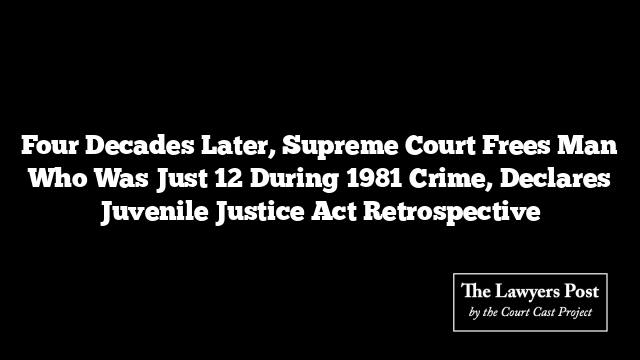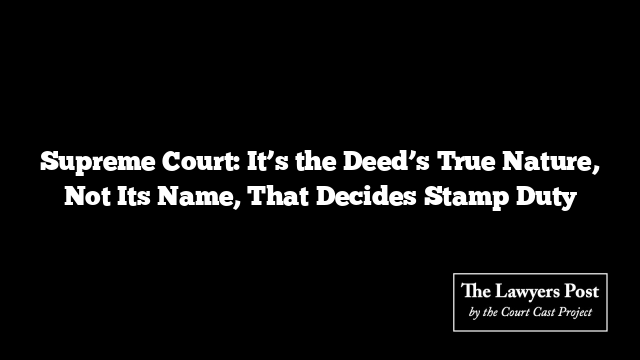Over forty years after a murder conviction, the Supreme Court has ordered the release of a man who was only twelve when the crime took place in 1981—affirming that the Juvenile Justice Act, 2000 applies even to offences committed before its enactment.
A Bench of Justices Dipankar Datta and A.G. Masih ruled that anyone under eighteen at the time of an offence, even if convicted before the 2000 law came into effect, must be treated as a juvenile. Relying on landmark precedents—Pratap Singh v. State of Jharkhand and Dharambir v. State (NCT of Delhi)—the Court emphasized that the protection of childhood cannot be bound by the calendar.
The petitioner, convicted by a Sessions Court in 1984, had been ordered to a children’s home under the Indian Children Act, 1960. His story wound through the legal maze for decades—an acquittal by the Allahabad High Court in 2000, its reversal by the Supreme Court in 2009, and his eventual custody in 2022. By the time he approached the top court under Article 32, he had spent more than three years behind bars—longer than the maximum permissible detention for juveniles under Section 15(1)(g) of the JJ Act.
Acknowledging that the man’s continued imprisonment violated his fundamental right to liberty, the Court ordered his immediate release—without waiting for the certified copy of its judgment.
“The petitioner was a child when the offence occurred. Having been confined for more than three years, his detention offends Article 21. His liberty must be restored,” the Court declared.
Rejecting the State’s argument that the 2000 law could not apply retrospectively, the Bench clarified that nothing in the earlier Indian Children Act barred relief under the newer legislation. The judgment also drew attention to how Parliament’s evolving juvenile justice laws—culminating in the 2015 Act—continue to uphold the right to raise a plea of juvenility at any stage, even post-conviction.
In the end, the Supreme Court reminded the nation that time does not erase childhood, nor can justice ignore it. The appeal was allowed, and the man—known in the record as Hansraj v. State of Uttar Pradesh—was set free.





